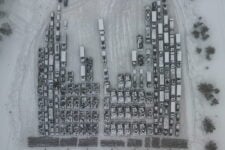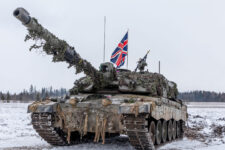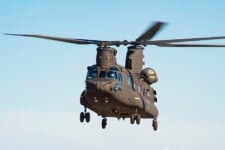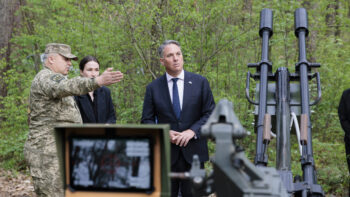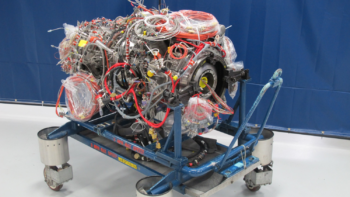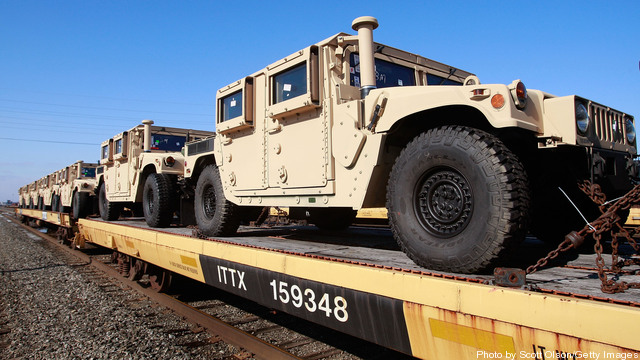 Washington: The Army is breaking in half its massive plan to revamp its Humvee fleet, giving industry two separate shots to lock in a part of the multimillion-dollar program.
Washington: The Army is breaking in half its massive plan to revamp its Humvee fleet, giving industry two separate shots to lock in a part of the multimillion-dollar program.
In the end, the Army will produce nearly 5,800 modified Humvees at a rate of three to four vehicles a day, under the Modernized Expanded Capability Vehicle (MECV) program, according to an executive summary of the program issued by Army Contracting Command.
The MECV effort is the Army’s plan to make the iconic combat truck that has carried American troops and equipment into battle since 1989, bigger, tougher and meaner.
The competition will be carried out in two phases. The first phase will focus on modifying the “armament carrier” version of the truck. The remaining Humvee variants will be covered in the second phase, which include command and control and anti-tank versions of the truck, according to the summary.
The ground service will compete both phases of the MECV program separately, awarding individual contracts for both phase one and phase two, it states.
For the first phase, the Army plans to hand out up to three research and development deals and then downselect to a single contractor once the program moves into the production phase by fiscal year 2013.
On the second phase, the Army will open up an entirely new competition but only allow the original three contractors chosen for the first phase to take a shot at it.
Under this plan, the winner of the first phase will likely lock up a deal to modify the remaining Humvees included the second phase.
The Army expects to issue a proposals request for those first phase development contracts next month and select the three contractors by next May.
Humvee builder AM General, a Textron-Granite Tactical team, along with Navistar — which builds a version of the Mine Resistant Ambush Protected vehicle — are the likely top contenders.
The request for proposals for the first phase of the MECV program had been expected to come out earlier this month. Now, the planned October release of the RFP has some speculating whether the delay was tied to efforts on Capitol Hill to cancel the Joint Light Tactical Vehicle.
The upgraded Humvees were expected to pave the way for the JLTV’s introduction into the fleet, while also providing U.S. soldiers with a bigger and tougher Humvee, Granite Tactical Vehicles President Chris Berman told me last month.
But when members of the Senate Appropriations defense subcommittee killed the JLTV, citing cost growth and delays in the program, they also shifted the MECV effort from “a stopgap to a [full] solution,” according to Bill Kisiah, vice president for advanced military vehicles at Textron.
Australia tops up Ukraine military aid with $100M
Australia has already supplied Ukraine with 120 Bushmaster vehicles, six 155mm howitzers, 56 M113 armored vehicles, 14 special operations vehicles and its signature cardboard drones.




